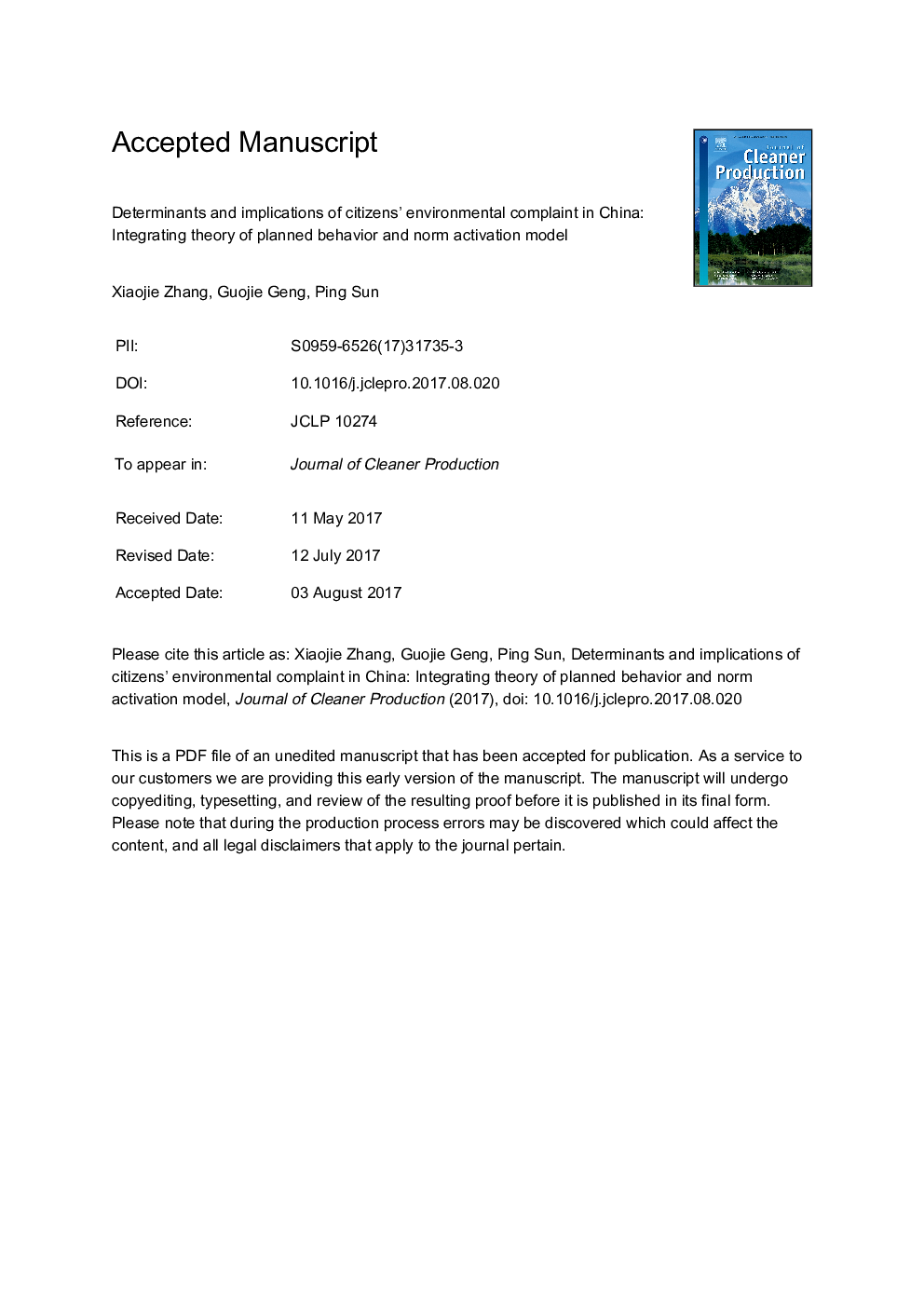| Article ID | Journal | Published Year | Pages | File Type |
|---|---|---|---|---|
| 5479891 | Journal of Cleaner Production | 2017 | 43 Pages |
Abstract
Citizens' environmental complaint is beneficial for environmental regulators in China to control various pollution emissions. What drives citizens to file environmental complaint has rarely been reported. This paper presents a study using an integrated theoretical framework of the theory of planned behavior and the norm activation model to explore the determinants of citizens' environmental complaint intention. A national data set involving 1958 respondents from forty-three cities at the prefecture and provincial levels in China was developed and analyzed for model testing. Results of the structural analysis reveal that the proposed model explains 63% of the variance in intention to file environmental complaints. Personal norm is the strongest direct determinant of intention, followed by perceived behavioral control and attitude. Awareness of consequences indirectly and significantly affects complaint intention. Furthermore, the study also confirms the significant indirect effect of subjective norm on behavioral intention by way of attitude, perceived behavioral control and personal norm. The study demonstrates the applicability, comprehensiveness and effectiveness of the integrative model in predicting citizens' intention to participate in environmental complaint behaviors. The empirical results also form a basis upon which policy interventions could be developed to promote environmental complaint intention.
Related Topics
Physical Sciences and Engineering
Energy
Renewable Energy, Sustainability and the Environment
Authors
Xiaojie Zhang, Guojie Geng, Ping Sun,
